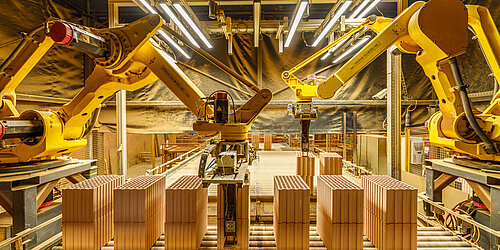The energy transition is a large-scale modernisation project for the economy and society, in which fossil fuels like oil, gas and coal are being replaced by climate-friendly alternatives. ZUG is promoting model projects and the search for solutions.
The energy transition encompasses many different areas: from power and heat generation to mobility and transport, from industrial-scale production to construction and housing. In all of these areas, the idea is to promote energy generation from renewable sources and establish climate-friendly alternatives.
Key pillars of this energy transition include the expansion of renewable energy sources like solar, wind and hydro power, using greater energy efficiency to reduce energy needs, sustainable transport, the flexible transformation of the energy system, and the creation of additional storage options (sector coupling), plus improvements to climate-friendly technologies like Power-to-X (PtX).
Target: greenhouse gas neutrality
The Federal Climate Change Act has set a clear target: Germany intends to become greenhouse gas-neutral by 2045. This means that the greenhouse gases emitted must be balanced out as a result of the sequestration of these gases by technical and natural sinks like forests, peatlands and oceans. If not, the targets of the Paris Agreement will not be achievable, namely: reducing greenhouse gas emissions to net zero, in order to limit global heating.
Technical innovation has an important role to play here. In aviation and shipping or in heavy industry, the direct (large-scale) use of electricity from renewables is not yet possible, for example. In this context, PtX products such as kerosene derived from green hydrogen offer the only climate-friendly and sustainable alternative to fossil fuels at the moment.
Digitalisation and artificial intelligence (AI) also offer new chances for the energy transition, as well as climate action, environmental protection and conservation, by expanding renewables, boosting energy efficiency or helping agriculture to conserve resources, for example.
Expertise, knowledge and innovation
The projects supported by ZUG work to stimulate transformation processes, demonstrate what is possible and help to set precedents. ZUG sets up centres of excellence and knowledge platforms, suggests innovative ideas, supports lighthouse and model projects, networks stakeholders, advises policymakers, and guides start-ups and companies along the path to greenhouse gas neutrality.
Current projects and initiatives
With its initiative AI lighthouses for the environment, climate, nature and resources, the BMUV is supporting projects that use their digital know-how and creativity to overcome ecological challenges.
Based in Cottbus, PtX Lab Lausitz – T&D Tank for Fuels and Basic Materials from Green Hydrogen aims to establish a technical basis for the environmentally friendly production and use of PtX products, as well as establishing partnerships. PtX Lab is also planning the construction and operation of a Power-to Liquid demonstration facility. This will enable Lusatia to become a model region for PtX in Germany and a post-fossil energy region for the future.
Since 2019, ZUG has also operated the Competence Centre on Climate Change Mitigation in Energy-Intensive Industries (KEI) in Cottbus. The KEI provides funding and advice for the mitigation of greenhouse gas emissions to firms in energy-intensive industries in Germany. The Centre’s work focuses on producers of basic materials such as steel, chemicals, cement, lime and non-ferrous metals, as well as other relevant parts of energy-intensive industries with process-related emissions.
The Hydrogen Coordination Office assists the German National Hydrogen Council in the implementation and development of the National Hydrogen Strategy: ZUG funds the Coordination Office on behalf of the BMUV, together with dena, NOW GmbH and Project Management Jülich (PtJ).
The Future Competition for Sustainable Mobility (#mobilwandel2035) supports local actors in developing and implementing their sustainable mobility visions for the year 2035.

